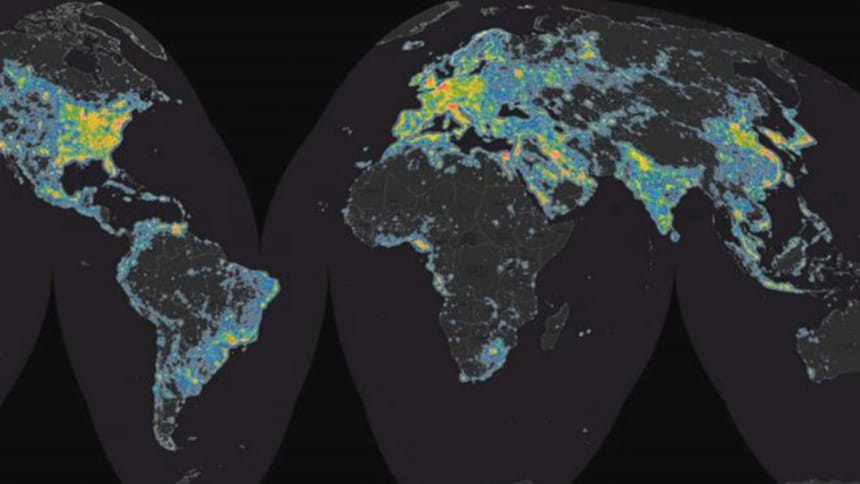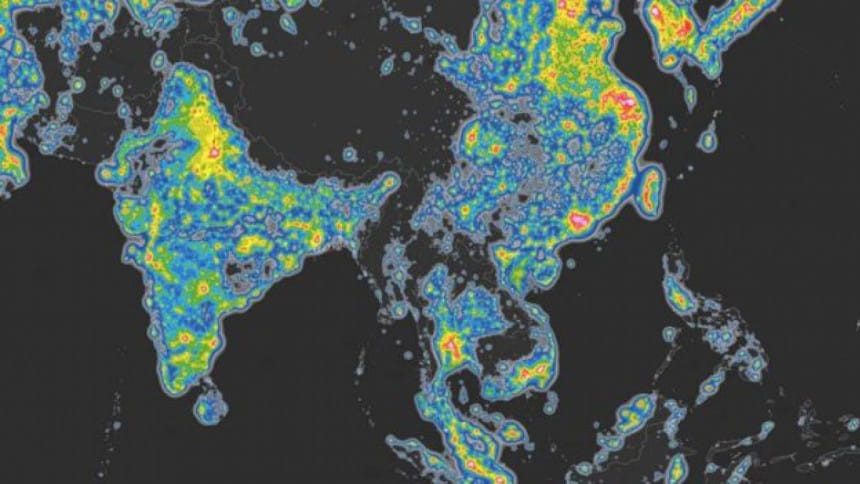Light pollution 'affects 80% of global population'

More than 80% of the world's population lives under light-polluted skies, a study suggests.
Scientists explain in Science Advances how ground measurements and satellite data were used to create an atlas of a world brightened by artificial lights.
It reveals that the population of Singapore, Kuwait and Qatar experience the brightest night skies.
Conversely, people living in Chad, Central African Republic and Madagascar are least affected by light pollution.
Dr Christopher Kyba, from the German Research Centre for Geosciences in Potsdam, said: "The artificial light in our environment is coming from a lot of different things.
"Street lights are a really important component, but we also have lights from our windows in our homes and businesses, from the headlights of our cars and illuminated billboards."
The brightness map reveals that 83% of the world's population, and 99% of Europeans and people in the US, live under skies nearly 10% brighter than their natural starry state.
For some though the artificial glow was even greater, said Dr Kyba.

"About 14% of the world's population don't even use their night-time vision," he explained.
"The night is so bright that they use their colour daytime vision to look up at the sky."
In Singapore, the entire population lives under this extreme level of artificial night-time brightness, and it is a problem affecting many other parts of the world.
"Twenty percent of the people in Europe and 37% of the people in the US don't use their night vision," said Dr Kyba. "It's really an enormous number."
He added: "In the UK, 26% of people are using colour vision and not night vision."

The researchers warn that nights that never get darker than twilight are affecting nocturnal animals, while in humans, the trend has been linked to sleep disorders and disease.
Dr Kyba said that while lighting was important for development and safety, technology needed to improve.
"There are a lot of street lights that are not particularly well designed," he explained.
"They shine light into areas that are not useful - so up into the sky, for example, isn't really useful for anybody.
"There's a big difference between having a well-lit street, which means everybody can get around really easily and safely, and a brightly lit street, which could mean there's too much light and it's not helping anyone."
The paper suggests that lights that are shielded, or can dim or turn off while not being used, could help to reduce light pollution as well as save energy.
The researchers add that light pollution is hindering astronomy: a third of the world now cannot see the Milky Way.

 For all latest news, follow The Daily Star's Google News channel.
For all latest news, follow The Daily Star's Google News channel. 








Comments